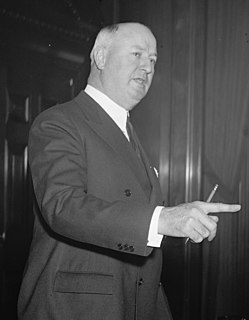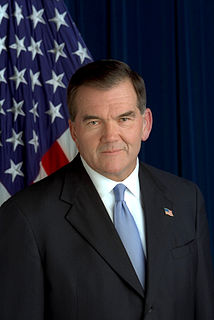A Quote by James Farley
If the choice is given to us of liberty or security, we must scorn the latter with the proper contempt of free man and the sound judgment of wise men who know that liberty and security are not incompatible in the lives of honest men.
Related Quotes
We all declare for liberty; but in using the same word we do not all mean the same thing. With some the word liberty may mean for each man to do as he pleases with himself, and the product of his labor; while with others, the same word many mean for some men to do as they please with other men, and the product of other men's labor. Here are two, not only different, but incompatible things, called by the same name - liberty. And it follows that each of the things is, by the respective parties, called by two different and incompatible names - liberty and tyranny.
The liberty I mean is social freedom. It is that state of things in which liberty is secured by the equality of restraint. A constitution of things in which the liberty of no one man, and no body of men, and no number of men, can find means to trespass on the liberty of any person, or any description of persons, in the society. This kind of liberty is, indeed, but another name for justice.
If this nation is to be wise as well as strong, if we are to achieve our destiny, then we need more new ideas for more wise men reading more good books in more public libraries. These libraries should be open to all — except the censor. We must know all the facts and hear all the alternatives and listen to all the criticisms. Let us welcome controversial books and controversial authors. For the Bill of Rights is the guardian of our security as well as our liberty.
Is the relinquishment of the trial by jury and the liberty of the press necessary for your liberty? Will the abandonment of your most sacred rights tend to the security of your liberty? Liberty, the greatest of all earlthy blessings - give us that precious jewel, and you may take every things else! . . . Guard with jealous attention the public liberty. Suspect every one who approaches that jewel.
Laws are the terms by which independent and isolated men united to form a society, once they tired of living in a perpetual state of war where the enjoyment of liberty was rendered useless by the uncertainty of its preservation. They sacrificed a portion of this liberty so that they could enjoy the remainder in security and peace.
Experience should teach us to be most on our guard to protect liberty when the Government's purposes are beneficent. Men born to freedom are naturally alert to repel invasion of their liberty by evil-minded rulers. The greatest dangers to liberty lurk in the insidious encroachment by men of zeal, well meaning but without understanding.































